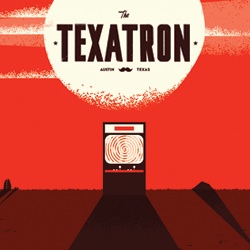ONE MORE GO: PASSAGE, OR WHY I REALLY SHOULD KNOW BETTER
I have a happy, long-running argument with one of the nicest game developers in the world about whether or not games can do subtle emotions. It’s a familiar debate: games can deliver big, bold visceral emotions – fright, frustration, triumph – but are subtler sensations – regret, embarrassment, alienation – beyond their remit?
As ever, what puts the kibosh on this whole discussion is that games don’t contain emotions at all. The emotions are supplied by each individual player, and since each individual player will respond to a game in a unique way, there’s no empirical answer to be had. Our happy argument has been bubbling along for years, but all that’s really happening is that he’s saying ‘here are the emotions I experience when gaming’ and I’m saying ‘and here are mine’.
So I shall not, in this column, be telling you about how Passage proves that games can somehow inject into their players the kind of oblique, mutating emotions we struggle to find words for. If that’s a disappointment to you, then a quick Google will provide satisfaction: hundreds of people have written movingly about their experiences of this little game about the biggest of ideas. I went back to it this week, as I often have before, for a refill of the ammunition needed to convince yet another friendly, clever, skeptical non-gamer about the potential of the medium. It worked: after talking her through Bioshock, Bejewelled, World of Warcraft and Passage, it was Passage she wanted to play.
What she will find if she does, is a meticulous, restrained recreation of some of the central conundrums of life. Is lifelong companionship worth the sacrifices you have to make to sustain it? Is it better to fix your eyes on a goal, or take the risk of exploring your options? Like much of Jason Rohrer’s other excellent work, it uses abstract game mechanics, rather than cut scenes and cinematics, to tell its stories and to ask its questions.
Not, of course, that you should underestimate the presentation. Rohrer’s written movingly about how precisely the man and woman in the game are modeled on himself and his wife. The blocky, pixellated style that he choses to work in doesn’t diminish the impact of this: indeed, in an argument familiar to anyone who’s read Scott McCloud’s enduringly useful Understanding Comics, Rohrer talks about deliberately simplifying the sprites in Gravitation to ensure they were symbolic enough for players to pin their own imaginations on.
So there’s a danger in seeing Passage as too abstracted. Its presentation may not keep Kojima up at night, but it’s still a fundamentally representational piece of work. What to make, then of Primrose, Rohrer’s new, purely abstract game? Primrose doesn’t come with an artist’s statement about the game’s emotional context – encroaching old age, the death of a loved one, the arrival of a new child – as some of his earlier work has. Its name doesn’t even cue you in to interpret the blocks, the colours and the cycle of destruction and modulation in any particular way.
Does that mean its any less reflective of his life and thoughts while making it? Almost certainly not. But this time, the meaning you find in it – I’m already having rather zen thoughts about how trying to control and plan actually leads to chaos, and developing an appreciation of how less can be more – is more truly your own.
It’s these kind of debates – nuanced, intellectual, contextual – that always send me back to Rohrer’s work when I’m called on to defend gaming to smart people who are wondering why they should make space for games among the music, literature, poetry and cinema they already don’t have enough time for. Except that’s a big fat lie. That’s not what sends me back to Passage.
What sends me back to Passage is the unshakable dread that I’ve missed something in it. The anxiety that I’ll make a tit of myself when I talk about it because I’ve misunderstood something fundamental about how it works. It’s that persistent sense of shame that I’ve never spent the kind of sustained time with it needed to fully appreciate it, fueled by that eternal insecurity that I’m just a pompous ass too busy trying to look clever to actually learn anything.
But wait – dread, anxiety, shame and insecurity? Turns out I did write a column about the subtle, secondary emotion that games can create in their players. Anything to win an argument.
[Margaret Robertson is the former editor of Edge magazine and now videogame consultant. One More Go is her regular Offworld column in which she explores the attractions of the games she just can’t stop going back to.]
- One More Go: God Hand, or why hardcore games ring my bell – Offworld
- One More Go: Wipeout, or The Single Best Games Console You Never …
- One More Go: Rittai Picross, or the One-Word Secret of Good Game …
- One More Go: Majora's Mask, or How to be your own hero of time …
- One More Go: Werewolf, or why playing games can give you hairy …
- Offworld: One More Go Archives
See more posts about: Offworld Originals, One More Go






